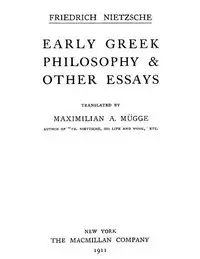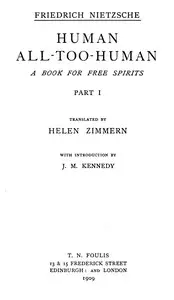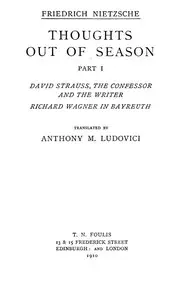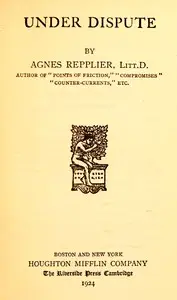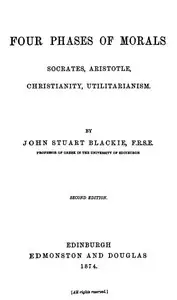"The Will to Power: An Attempted Transvaluation of All Values. Book I and II" by Friedrich Nietzsche is a profound philosophical work written in the late 19th century. The text delves into the concept of nihilism, exploring the decline of traditional values and the necessity for their reevaluation in light of a more vigorous affirmation of life. Nietzsche articulates his central idea that the "Will to Power" acts as the fundamental driving force behind all living beings and that the decline of religious and moral interpretations of the world has led to a crisis of values. At the start of the work, Nietzsche introduces the idea of nihilism as a significant theme, positing that contemporary culture is at the brink of embracing it due to a loss of faith in previously held values. He critiques traditional morality and religion as contributing to this existential crisis, indicating that they ultimately lead to disillusionment and a sense of meaninglessness. Nietzsche suggests that to overcome nihilism, a new framework of values based on the Will to Power must be established, ultimately positioning this work as a call to recognize life’s inherent strength and create new values that affirm existence itself. (This is an automatically generated summary.)
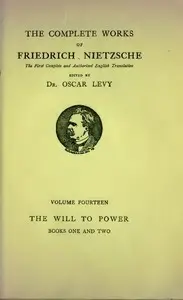
The Will to Power: An Attempted Transvaluation of All Values. Book I and II
By Friedrich Wilhelm Nietzsche
"The Will to Power: An Attempted Transvaluation of All Values. Book I and II" by Friedrich Nietzsche is a profound philosophical work written in the l...
Friedrich Wilhelm Nietzsche was a German classical scholar, philosopher, and critic of culture, who became one of the most influential of all modern thinkers. He began his career as a classical philologist before turning to philosophy. He became the youngest person to hold the Chair of Classical Philology at the University of Basel in Switzerland in 1869, at the age of 24, but resigned in 1879 due to health problems that plagued him most of his life; he completed much of his core writing in the following decade. In 1889, at age 44, he suffered a collapse and afterward a complete loss of his mental faculties, with paralysis and probably vascular dementia. He lived his remaining years in the care of his mother until her death in 1897, and then with his sister Elisabeth Förster-Nietzsche. Nietzsche died in 1900, after experiencing pneumonia and multiple strokes.

